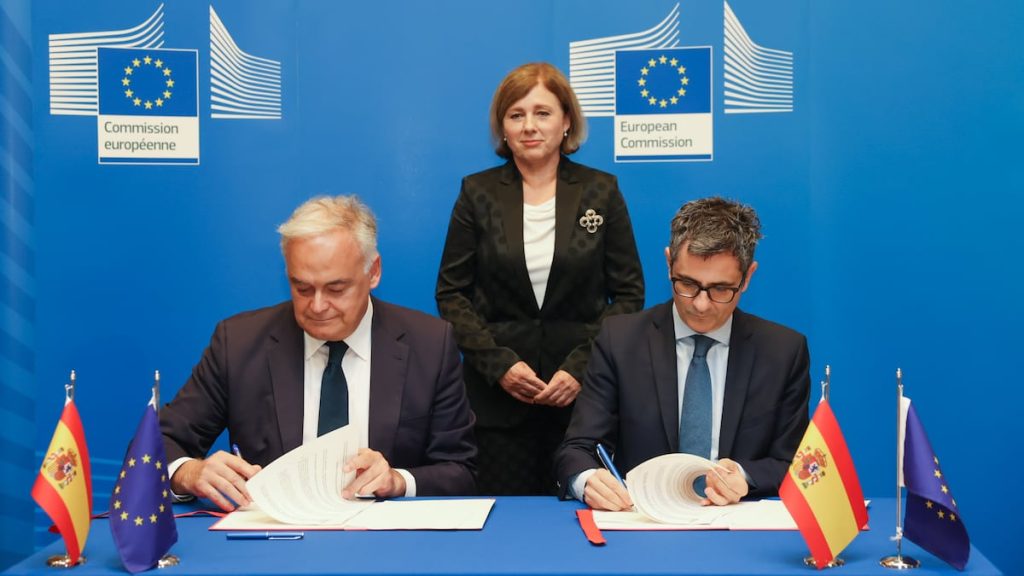The relationship between the two major political parties, PP and PSOE, in Spain had reached a critical point due to the lack of cooperation between leaders. Despite multiple attempts to reach an agreement, there was always a last-minute setback, with strong pressure from conservative voices against any collaboration with Pedro Sánchez’s government. However, a significant breakthrough occurred with the first major bipartisan agreement between Sánchez and Feijóo, signaling a normalization of relations between the parties and opening the door to other potential agreements in key areas such as the Bank of Spain, CNMC, CNMV, and RTVE. This agreement sends a clear message to all sectors, including the economic world, that Feijóo is willing to move away from the constant speculation of a government collapse and early elections in the fall.
This agreement, similar to the one nearly finalized in 2022, represents a significant shift in Feijóo’s approach to politics in Spain, moving away from the constant atmosphere of crisis encouraged by far-right voices and Isabel Díaz Ayuso. It also makes it difficult for some elements within the PP to continue promoting the idea of Sánchez leading the country towards a dictatorship, as they now take on a more active role in ensuring the CGPJ’s independence through a negotiated reform with the PSOE. Both parties had to make concessions, with the PSOE accepting a more balanced distribution of conservative and progressive members in the CGPJ, while the PP gave up its demand for judges to directly elect a majority of CGPJ members.
One of the most challenging concessions for the PSOE was accepting José María Macías, who has close ties to the PP and a history of attacking the government, as a member of the CGPJ. Despite these challenges, the agreement represents a significant step towards greater independence and balance within the judiciary, with a potential progressive majority in key judicial institutions. The agreement also addresses issues such as restrictions on transitions between politics and the judiciary, which were also part of the 2022 negotiations. Feijóo’s decision to assume the “political cost of coherence” marks a significant shift within the PP towards normalizing relations with the government and distancing themselves from extreme positions.
The agreement, which could have been reached much earlier, signifies a turning point in the relationship between the two major parties and unlocks the long-standing judicial impasse in Spain. The timing of the agreement, amidst electoral uncertainties and the Catalan question, reflects a pivotal moment in determining the future of the current legislature. The PP’s willingness to engage in a bipartisan agreement signals a commitment to the stability of the government, counteracting the narrative of an imminent government collapse. While challenges remain, particularly in the appointment of new Supreme Court judges, the agreement represents a vital step towards political normalization and cooperation in Spain. The agreement also effectively addresses concerns about government authoritarianism, as the main opposition party has opted to collaborate with the government to resolve judicial issues.


